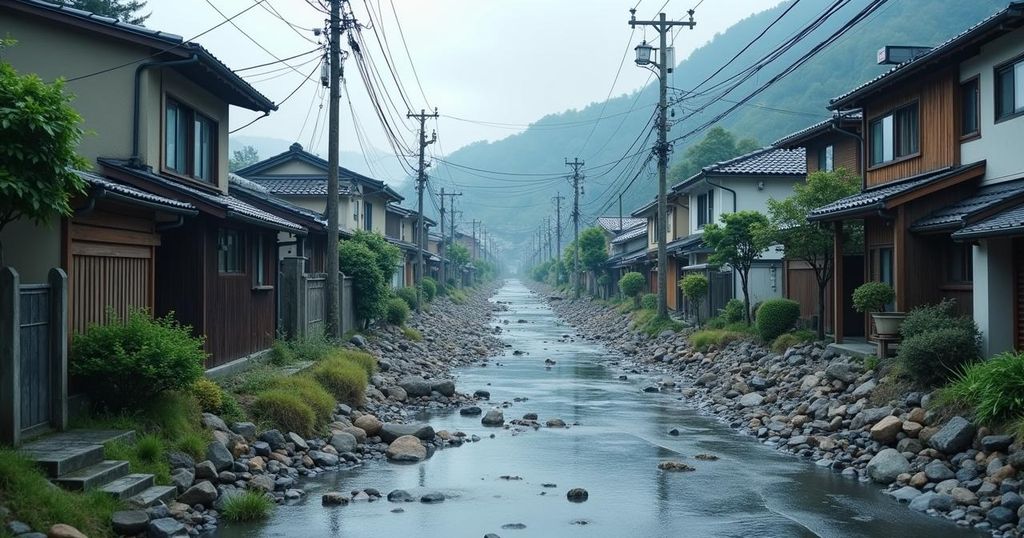Residents in Ishikawa Prefecture’s Noto Peninsula are urging government support for rapid reconstruction following a devastating earthquake and heavy rainfall. Some locals feel that the upcoming elections are inappropriate amid ongoing recovery efforts, with many expressing frustration over their ability to vote due to their circumstances. Direct voices from the affected community highlight the urgent need for restoration of critical infrastructure.
Residents of the Noto Peninsula in Japan’s Ishikawa Prefecture, recently affected by a powerful earthquake on New Year’s Day and subsequent heavy rainfall, are actively seeking immediate government assistance for reconstruction efforts. Some locals have expressed discontent regarding the timing of the upcoming House of Representatives election, believing that it is inappropriate to campaign while the region grapples with crisis recovery. At the Wakura Onsen hot spring resort in Nanao, which experienced significant damage from the earthquake, members of the local tourism sector gathered to hear candidates’ speeches promoting reconstruction initiatives. Tazuko Tada, aged 88, poignantly remarked, “If the inns do not reopen, the town will not regain its vitality. I want support to quickly restore our former hot spring town.” Meanwhile, a fisherman in his 80s lamented the impact of the disaster on livelihoods, highlighting the deterioration of essential infrastructure including the fishing port, which remains incapacitated due to coastal uplift caused by the tremor. He stated, “I won’t be able to earn a single yen as things stand now. I hope efforts will focus on restoring the fishing port.” The impact of the earthquake was particularly severe for individuals such as Yoshiaki Sakakado, 61, who lost his home in Wajima and faced further displacement during heavy rains. Expressing his lack of motivation to participate in the elections, he provided insight into the challenges faced by many local voters whose living situations have been drastically altered, noting that his vehicle had been submerged in water. Polling officials clarified that while polling station tickets are dispatched solely to registered addresses, residents can still vote at evacuation centers provided they can verify their identity. However, many evacuees are unaware of this option, with one respondent conveying a sentiment of resignation: “It is not as if anything will change with the election, and I do not know what to hope for.”
The events in Japan’s Ishikawa Prefecture highlight the complex interplay between disaster recovery and electoral politics. Following the earthquake on January 1st and record rainfall the previous month, communities in the Noto Peninsula are under significant strain as they navigate immediate recovery needs while preparing for an electoral process that some residents feel is untimely. The traditional procedures surrounding voting in Japan, combined with the hardships imposed by natural disasters, have created confusion and disenchantment among the electorate, with many questioning the potential efficacy of the political process in improving their current dire circumstances.
In summary, the current state of disaster recovery in Japan’s Noto Peninsula province reveals a populace yearning for immediate government action and support amidst their struggles. The timing of the upcoming elections has prompted critical discourse among residents, who question both the relevance of political campaigning in times of crisis and their ability to engage in the electoral process, given their challenging living conditions. It is evident that there is a pressing need for awareness and communication regarding voting procedures, particularly for those displaced by disasters.
Original Source: english.kyodonews.net






